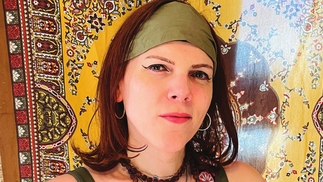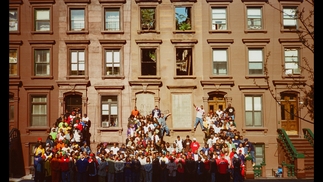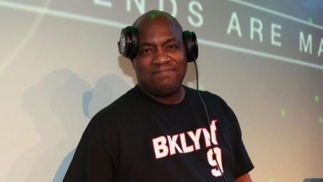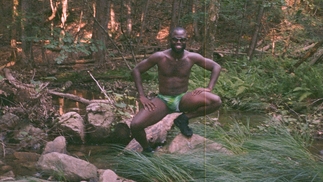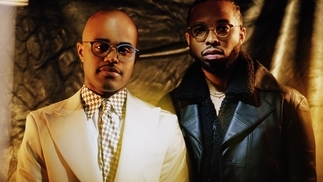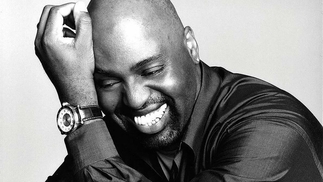WE NEED YOUR LOVE
Tommie Sunshine writes a tribute to the Godfather of House, Frankie Knuckles

Francis Nicholls was born January 1955 in The Bronx, New York. But Frankie Knuckles, as we came to know him, was born in March 1977 at The Warehouse, 206 South Jefferson Street in Chicago, IL.
Knuckles’ four-decade backstory reads like the entire blueprint for house music. Frankie was a card carrying member of David Mancuso’s legendary NYC parties at The Loft; he blew up balloons and gave out acid at Nicky Siano’s The Gallery and started DJing at The Continental Baths alongside his childhood friend, Lawrence Philpot, who we came to know as Larry Levan. "We would spend entire afternoons working up ideas on how to present a record so that people would hear it in a new way and fall in love with it," Knuckles later recalled. "To us it was an art form."
The '70s in NYC, just as it was everywhere else, was a tough place to be gay, and just as the sexual revolution was about to boil over, you had a whole community fighting for its place in the world, beautifully sound tracked in part by Knuckles and Levan.
Robert Williams, a New Yorker who came from The Loft dancefloor himself, moved to Chicago and wanted to bring NYC to Chi-town. His first choice was Levan, but he settled on the 20-year-old Knuckles who was willing to move away. I can’t begin to explain how different all of music would have been if Levan took the gig and moved to Chicago and Knuckles possibly helmed the Paradise Garage back in NYC. There is no telling what would have happened if this was the case. One can only daydream.
The Warehouse under Frankie’s control spanned a rainbow of musical colors; proper R&B, string-laden disco, groove-heavy reggae, computer-pulsed Italo disco, bassline driven funk, experimental post-punk and Moroder-esque synthesizer Europop. That rich tapestry, he said later, came to be nicknamed “house music,” an abbreviation of the club’s name.
The Warehouse transformed over time from a very black, very gay club to a more diversified mix of ethnicities and sexual orientations. In 1983 he pulled the plug and brought the faithful over to his next schoolhouse, The Powerplant. The earliest Chicago/Detroit synthesis brought Derrick May, an early Knuckles fan, to Chicago in early 1984 to sell him a Roland TR-909 drum machine to lay over his re-edited tracks while he DJed.
Knuckles said the music he made in Chicago never made him any money as he and everyone else in that era suffered from signing bad contracts and misrepresentation. In 1988 he knew it was time to go, and in the wake of the closing of the Paradise Garage saw a new frontier back on his home turf in NYC.
I feel like so much is said about Frankie’s time in Chicago at The Warehouse and The Powerplant, but little is said about his much longer tenure in New York City, starting with his post-Chicago residencies at The World, Sound Factory, The Roxy, Sound Factory Bar and The Saint. When he arrived he was second only to David Morales on the Def Mix roster, created by New York dance music vet Judy Weinstein, and this is when he really spread his wings as a producer. Many consider that era of early ‘90s Def Mixes and its superstar roll-call to be the Motown of house music.
Frankie was a musically extravagant man who was said to always know exactly what he wanted in the studio. His tapestries, stitched with disco, soul and R&B, were about long piano and lush string journeys, and ultimately about arrangement, vocals and songwriting. What set Frankie apart from so much of what surrounded him in the many eras of his life was songs. This was never more evident than when he was awarded the very first Grammy for Remixer Of The Year, Non Classical in 1998.
House music's roots being black and gay, mainstream acceptance in the USA was always going to be tough. That being said, I believe we’re approaching a moment where this could actually happen, and the biggest shame about Frankie passing is he won't get to see this particular moment of glory. However, he was honored by then-Senator Obama in Chicago, and unlike Larry Levan and Ron Hardy before him, got to enjoy many years of beloved and honored fans dancing to his musical stories with smiles on their faces, loving him in real time. He was different, he was a living legend and thankfully he knew well of his worldwide reverence.
Sadness upon first hearing the news turned to anger, which then turned to grief. His music seemed intimate to me and spanned so many eras of my own life. Memories of all those special moments spent dancing to his creations float in and out of my head; melancholic moments now that will hopefully fade to happy again in time. I never felt more alive than dancing to "The Whistle Song," which he created alongside his longtime collaborator Eric Kupper, and I’m not sure I’m ready yet to give it a listen all the way through. The great Laurent Garnier put it best when he said that losing Frankie was “like losing one of the biggest roots of the tree.”
I chose not the path of those who influenced me but instead delve into more aggressive territory, especially these days. A man needs not follow in someone’s footsteps to feel their influence. I feel like most of what I’ve made and played over the course of my own two decades has been informed by Frankie’s Chicago years.
I believe that Disclosure, Gorgon City, Motez, Tensnake and Duke Dumont are fully prepared to take house music into a new era of glorious songwriting in memory of Frankie Knuckles. The world we live in today is full of so much pain that could be made better by house music. One can only hope that people are simply ready and open to heal. Music will never ever be the same without Frankie Knuckles, but his impact and influence will be felt for generations of jackers to come. We should all be excited to see what sprouts out of the seeds Frankie planted over the last 40 years. If house was “Disco’s Revenge,” as he once called it, then what beauty can we expect in our upcoming future? I take this moment to say “Thank you” from all of us Frankie for what you did that made our lives so much better.
Enjoy remixing all of Heaven
-Tommie Sunshine
